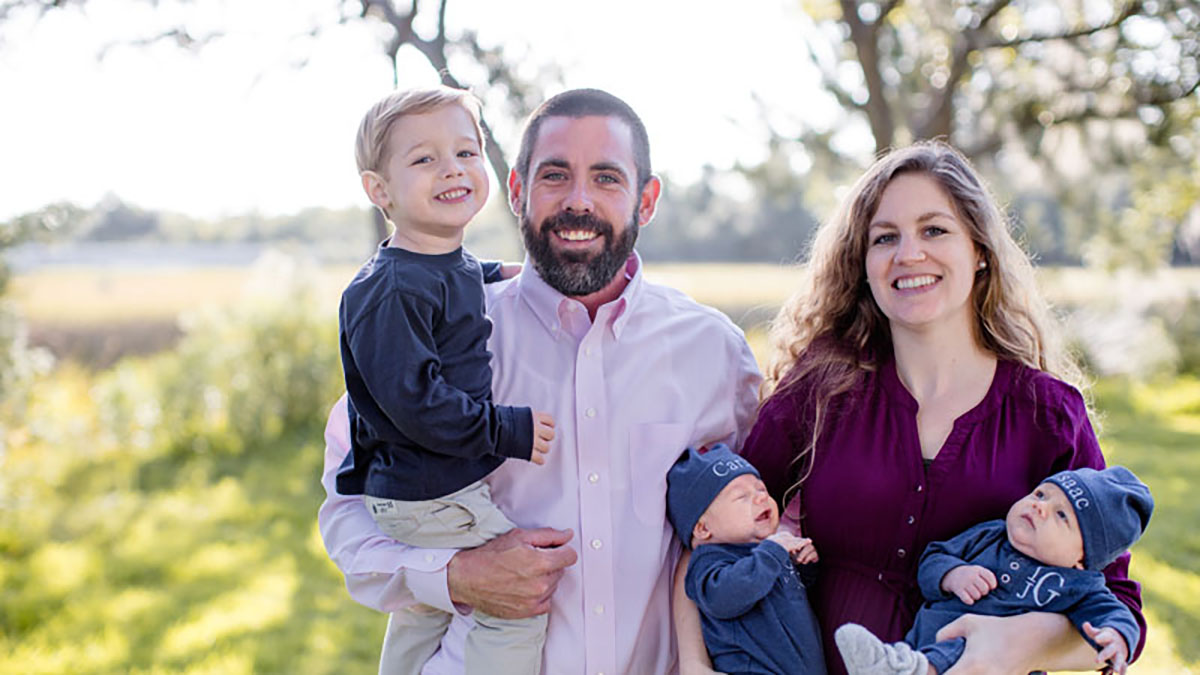While pregnancy is often a time of joy and anticipation, some women don’t have family members and friends to lean on. They have to navigate pregnancy and motherhood alone.
Marqulia Gowens didn’t have much support when she had her two oldest children. With the first, she was young and the father wasn’t in the picture, she explained. And with the second, he was around but could offer minimal assistance.
Late in her third pregnancy, Gowens visited a maternity fair and met someone who closed the door on her solo journey. That someone was Amber Pendergraph-Leak, executive director of the nonprofit BirthMatters, which offers support and care to expectant mothers in underserved communities.
“At the time, I was good as long as my kids were good,” Gowens recalled. “Amber helped me realize that I was abandoning myself and doing more for others than doing for myself.… You can’t pour anything into your children or anyone else if you’re not putting yourself first. That stuck with me.”
Gowens received prenatal, delivery and postnatal care through BirthMatters. Pendergraph-Leak visited her at home on a weekly basis, offering essential tools for self-care. She was also by Gowens’ side during labor, in the doorway during her emergency cesarean section and with her in the recovery room to help her become comfortable with breastfeeding.
Just as the organization’s other doulas do for all clients until the baby’s first birthday, Pendergraph-Leak continued visiting Gowens weekly – often with diapers and clothing in hand. The support Gowens received mirrors what’s typical of BirthMatters.
The doula services are varied and plentiful, at no cost to the family.
“Being community based, one day you might be a massage therapist, the next day you might be a therapist and the next day you might be a grandma, a sister and auntie,” said Pendergraph-Leak, explaining how doulas wear many hats. “Whatever they need, you meet them where they are. We empower our moms to make informed decisions and help them through the
process.”
With grant funding and awards from organizations such as the Mary Black Foundation, the Institute for Child Success and the United Way, BirthMatters has helped 60 Spartanburg families annually; the nonprofit plans to expand assistance to 200 families each year and open additional sites throughout the state, according to Pendergraph-Leak.
The organization utilizes the community health worker model to bridge communities, health care systems and state health departments as care unfolds. Eligibility requirements for Birth Matters are based on income; mothers must be 25 years old or younger and families must be Medicaid-eligible Pendergraph-Leak estimated that about 85% of the clients are African American, and they come to the organization mostly through word-of-mouth referrals and local OB/GYN practices.
Through BirthMatters, Gowens was able to meet with therapists who encouraged journaling, taught her mental exercises and provided parenting tips to help her manage her postpartum depression and avoid triggers from life’s stresses. Gowens credits the staff at BirthMatters for helping change her perspective and “get myself together and focusing more on me.” She went to cosmetology school and now owns her own salon, Quays Majestic Hands, in Spartanburg.
“As I continued through the program, I got better,” she said. “I got ahold of my life and got to be a better mother to my children.”
Additional Information: birthmatters.org.
By Linda L. Esterson
